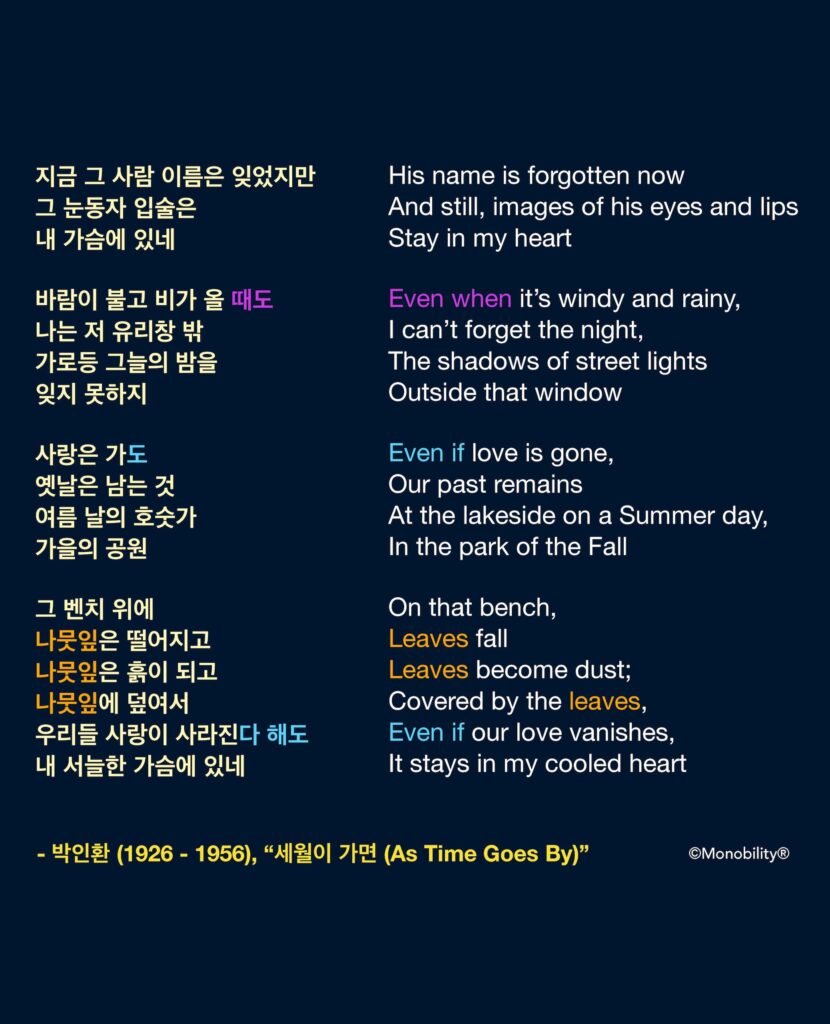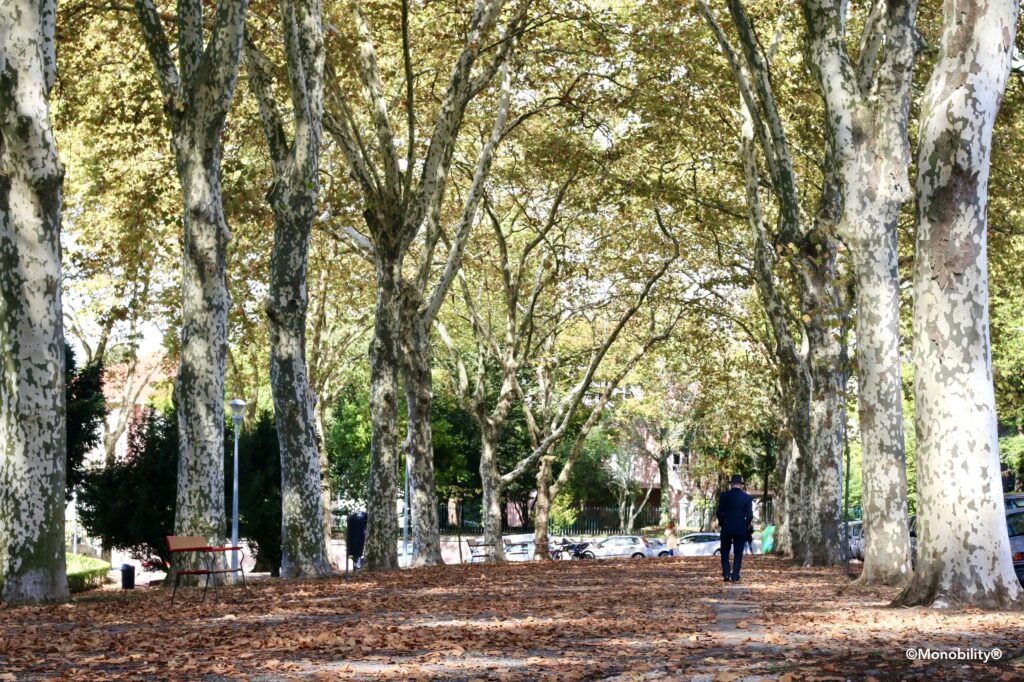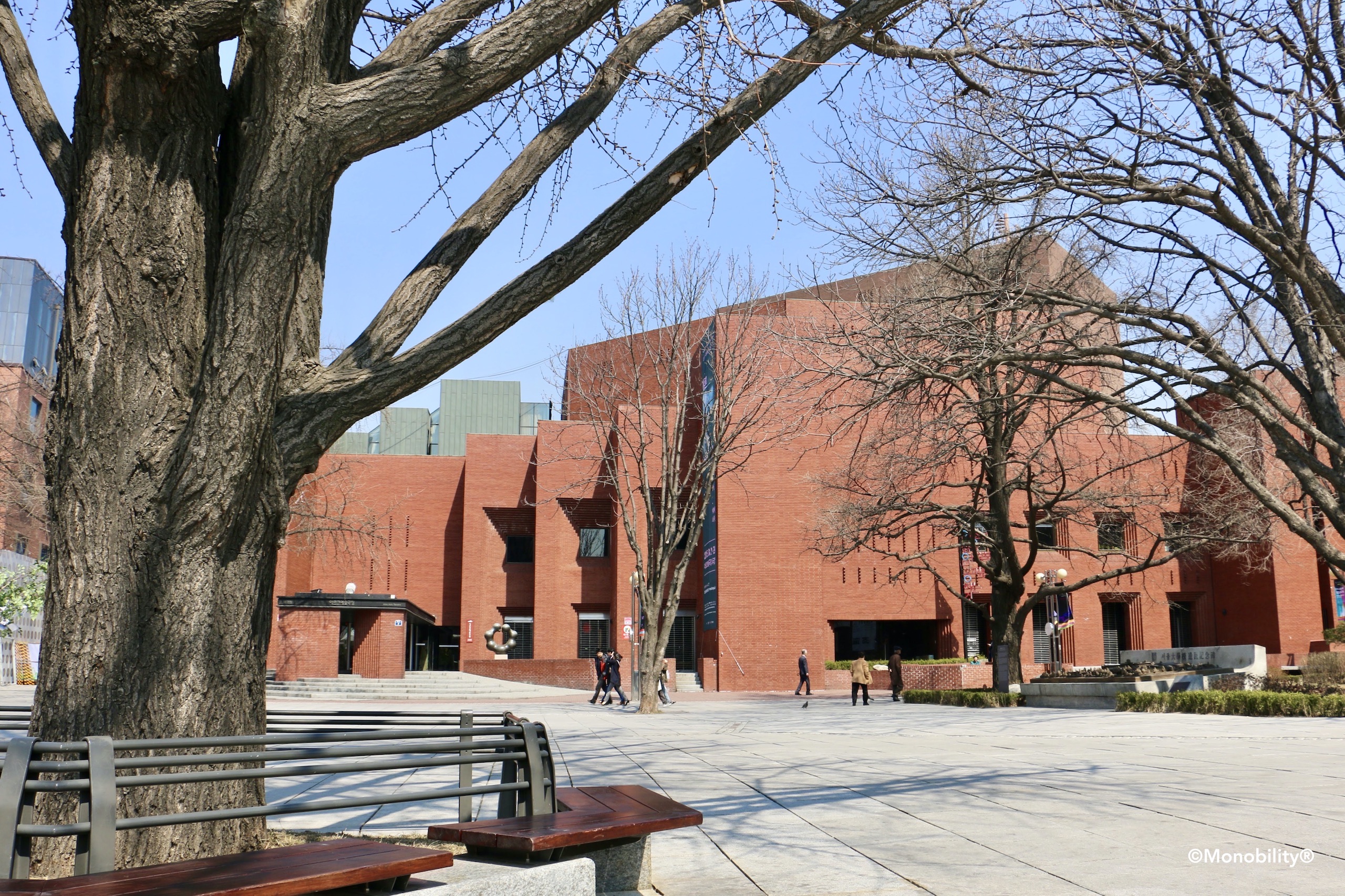- Concessive clause with -도
When a Korean clause has an ending with “-도,” it is an expression of “concession.” In English, such a clause can often be translated as “Even if,” “Even though,” “Although,” etc. The “-도” clause “admits or concedes” the supposition expressed in the clause, and indicates that the situation of the following main clause occurs regardless of the action described in the “-도” clause. There are many variations, but all of them basically mean “Even if”:
- -어도/-여도/-아도
- -다(고) 해도 / -더라도 / -다고 하더라도 / -다고 한들
- -ㄹ 지라도 / -ㄹ 망정 / -어/아 봤자
- 사랑은 가도 추억은 남는다 = Even if love is gone, memories stay.
- 그 사람이 거길 간다 해도 따라가지 마세요 = Even if he goes there, don’t follow him.
Note that “-도” is not only a particle for a verb, but can also be added to a noun. In that case, it means “even” “also”, “…, too.”
- 이젠 몸도 마음도 다 지쳤다 = Not only my body, but also my spirit is tired now.
- 비가 올 때도 난 우산을 안 써요 = Even when it rains, I don’t use an umbrella.
- Irregular Pronunciation: 나뭇잎
If you know a few phonological rules such as consonant assimilation by now, you will be able to pronounce 99.9% of Korean words correctly, thanks to the phonetic alphabet 한글. There are very few exceptions, e.g., 나뭇잎 (Leaf/Leaves):
- 나뭇잎 = 나무 (Tree) + 잎 (Leaf) = 나무(+ㅅ)잎 => 나뭇(+ㄴ)잎 => 나묻닙 => [나문닙]
It would be outside the scope of this post to explain each and every phonological phenomenon shown above. The point for you to remember is that the common word 나뭇잎 is actually pronounced NOT as “나무십” or “나무딥,” but as “나문닙.” Two more commonly spoken words follow the same pronunciation pattern:
- 깻잎 (Sesame leaves / Perilla leaves) = [깬닙]
- 베갯잇 (Pillow covers) = [베갠닏]
You can listen to the legendary folk singer 박인희 pronounce the word 나뭇잎 with her crystal clear voice and diction in the following song. The lyrics are from a well-known poem “세월이 가면” by 박인환 (1926 – 1956):

Check out our Facebook for much more:



